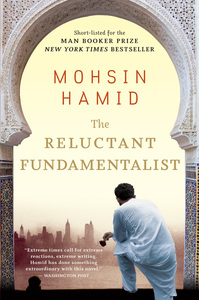You need to sign in or sign up before continuing.
Take a photo of a barcode or cover
mysterious
reflective
tense
fast-paced
Plot or Character Driven:
Plot
Strong character development:
Complicated
Loveable characters:
Complicated
Diverse cast of characters:
Yes
Flaws of characters a main focus:
Yes
I liked this more before I realized it was a big goofy allegory.
Spoiler
[Am]Erica pining for her dead Chris[t] over Changez[/s]—like, come on man.
Short but interesting. I liked the narrative voice as it was different. Hated that the Kindle version had a ton of typos and errors.
reflective
medium-paced
Plot or Character Driven:
Character
Strong character development:
Yes
Loveable characters:
Complicated
Diverse cast of characters:
Yes
Flaws of characters a main focus:
No
Rambling and senseless in someways, and deeply introspective in others. Not a bad read to start off the year with. I definitely found this ‘alternative’ look at the September 11th, 2001 attacks worthwhile. It would be a great book club book, as there is a lot to think on or talk through.
informative
mysterious
tense
medium-paced
Plot or Character Driven:
Character
Listened to on audio. Not at all what I expected. Absorbing story of a Pakistani student who comes to the US to go to college, and his inner turmoil in the world immediately post-9/11. The end left me wanting more.
The Reluctant Fundamentalist was an engaging and interesting book. I got through it really quickly, and found myself somewhat excited for each new page. The format of the book is really interesting, and works quite well in this case. Hamid writes about love in a very compelling way as well, just as he did in Exit West. I think the political commentary in this was much more interesting than in Exit West, though, while the story itself (and love) were much more beautiful in Exit West. There are times when I felt like the book was a little over-the-top or predictable, but as a whole, the storyline was intriguing, especially in a post-9/11 world.
Very good
I unfortunately watched the movie which is not good. But the novel is a slender and well written take. A love story and coming of age novel. I liked Erica.
I unfortunately watched the movie which is not good. But the novel is a slender and well written take. A love story and coming of age novel. I liked Erica.



